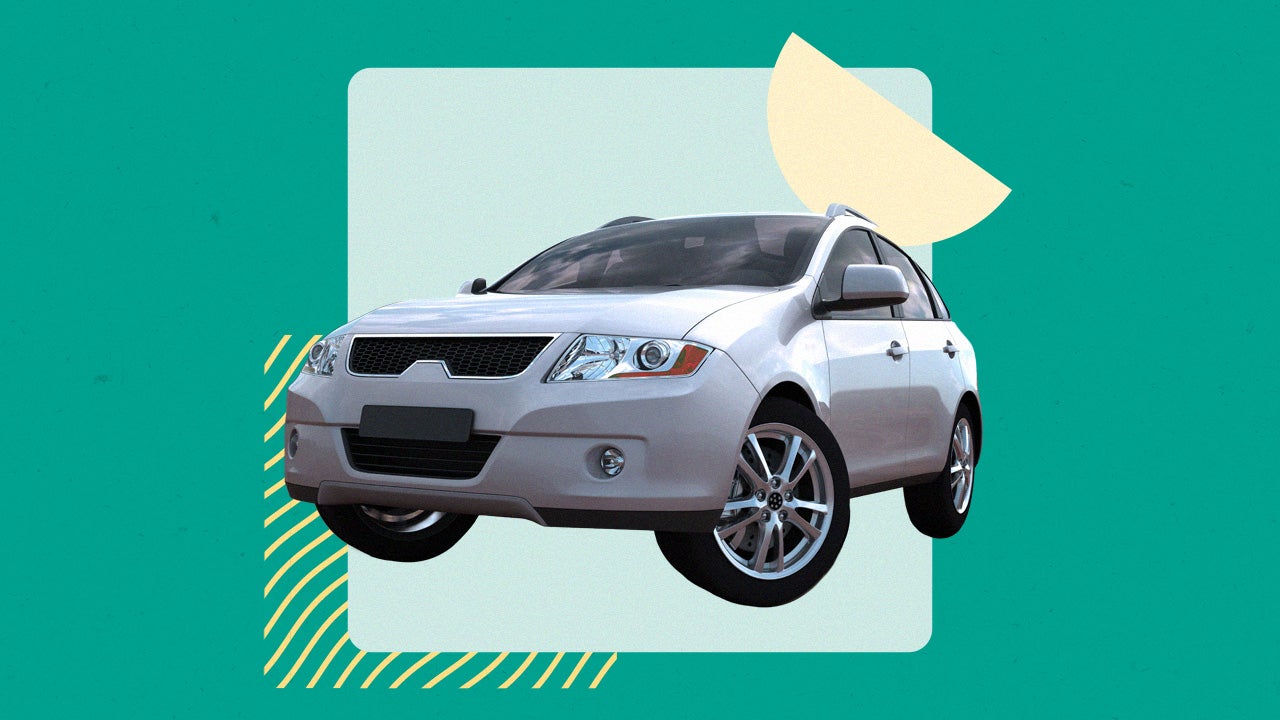How do title loans work?

Key takeaways
- Car title loans are a convenient way to get fast cash if you own your vehicle outright.
- These loans are risky though, as they use your vehicle as collateral and come with steep borrowing costs.
- Consider an alternative, like a credit card, personal loan or payday alternative loan, to access the funds you need.
- If you must use a car title loan, read the fine print to ensure you understand what you’re getting into.
All loans come with risks if they’re not repaid on time. However, a car title loan carries an especially troubling consequence if you fail to meet your payment obligations: the lender can take your vehicle.
Still, the significant downsides don’t stop consumers from considering these loans. In 2024, roughly 5.2 percent of consumers took out auto title loans, according to a Consumer Financial Protection Bureau (CFPB) report — up from 3.7 percent in 2023.
Before you apply for a title loan, understand the risk of using your vehicle as collateral to borrow money. These are also one of the more expensive types of loans with relatively tight repayment terms, making them a pricey option that should only be used as a last resort.
What are car title loans?
A car title loan allows you to borrow anywhere from 25 percent to 50 percent of the value of your vehicle in exchange for giving the lender the title to your vehicle as collateral.
Car title loans cater to consumers with past credit challenges who need fast cash. Most lenders have little to no credit requirements — some won’t even check your credit. The application process is usually simple, and, if approved, funding may be disbursed within a business day.
- Loan terms
-
These short-term loans typically start at $100 with repayment periods of 15 to 30 days.
- Borrowing costs
-
Title loans come with steep fees compared to the amount borrowed, which leads to a high annual percentage rates (APR). Some states limit how much lenders can charge, while others have no restrictions.
- Accessibility
-
If you live in one of the 25 states where car title loans are allowed, you will generally need to own your car outright to obtain a loan, although some will approve you if you owe a small amount. There are 12 states that offer these loans with restrictions.
How do title loans work?
Car title loans use your vehicle as collateral, including cars, motorcycles, boats and recreational vehicles. Some are single-payment loans, meaning the borrower must pay the full amount of the loan plus any fees within a month or so. Installment loans can be paid back over three or six months, depending on the lender.
To illustrate how these loans work, assume you own a car worth $5,000 but need $1,000. You’ll pay a finance fee of 25 percent. On a $1,000 loan, this is equivalent to $250 in interest even if the loan is repaid in just 30 days. That comes out to an annual percentage rate (APR) of more than 300 percent. For comparison, in the first quarter of 2025, the average APR on a personal loan was 12.64 percent.
Some lenders also charge origination, processing and document fees, driving the borrowing costs even higher. You may also be required to obtain and pay for a roadside service plan for your vehicle or be required to have a tracking device installed.
What do you need to apply for a car title loan?
You can apply for a car title loan online or in person, but you’ll need to visit a physical location to show your car to the lender. Also, prepare to provide the lender with:
- A clear title.
- Proof of insurance.
- A photo ID.
The lender may also want a set of keys. The car will remain in your possession during the repayment period unless you default on the loan.
Drawbacks of car title loans
While getting a title loan may be easy, the convenience is tied to serious costs and risks.
“If you can’t pay back the loan when it’s due, it’s rolled over into another cycle with more fees,” says Bruce McClary, senior vice president of communications at the National Foundation for Credit Counseling. “It creates a very difficult situation for people who are already struggling to repay. It is the exact definition of the cycle of debt.”
The biggest downside, though, is the potential to lose your car. If you can’t repay the loan, the lender can take your vehicle and sell it to recoup its money.
Even worse, “some car title lenders install a GPS device — nicknamed a ‘kill switch’ — that can prevent the borrower’s car from starting, using this practice as a means of collecting a debt or making it easier to seize the car,” adds Graciela Aponte-Diaz, vice president of community engagement at the Julian Bond Institute for Financial Equity Research (JBI).
Will a car title loan affect your credit?
In most instances, title loans don’t impact your credit. Auto title lenders generally don’t perform credit checks or report to the credit bureaus. However, defaulting on a title loan can have serious consequences for your credit scores.
Many title lenders charge hefty fees for missed payments. Missing even one payment can substantially increase the amount you owe, and missing multiple payments can start a cycle of debt that is hard to escape.
Lenders can repossess your vehicle, but if your debt has surpassed the value of your vehicle, then the remaining debt can be turned over to a debt collection agency. At that point, the debt will appear on your credit reports.
Alternatives to title loans
Despite the serious downsides, some consumers aren’t convinced they can get approved elsewhere. In fact, a CFPB study found that 48 percent of payday, pawn and car title borrowers avoided applying for other forms of credit.
However, McClary recommends reaching out to traditional banks and credit unions to identify less costly lending options. Or you can use a credit card if you have one available to meet your short-term cash needs.
Even if you don’t have a bank account, have a lower credit score or have struggled with poor financial decisions in the past, it’s worth investigating all your alternatives.
“It’s interesting how flexible these traditional lenders can be,” McClary says. “There are a lot of credit unions that are willing to work with unbanked customers.”
Apply for a personal loan
Although qualifying for a personal loan can be challenging if you have bad credit, you may have options. Some online lenders feature bad credit loans you could be eligible for.
If you’re a credit union member, you can also try explaining your situation to a banker. Credit unions may loan to you based on the strength of your relationship and good banking history. Or you can ask a friend or relative with a steady source of income and strong credit rating to apply as a cosigner, strengthening your approval odds.
Use a payday alternative loan
Payday alternative loans are another less costly option to consider. They’re available through some credit unions, but you must be a member to access this loan product. Loan amounts range from $200 to $2,000, payable over one to 12 months.
The application fee is capped at $20, and you’ll pay no more than 28 percent in interest — less than some bad credit personal loan rates. This makes payday alternative loans more affordable than most car title loans.
Use a credit card
You can also use a credit card for a dire financial emergency. Or you can pull funds from your credit card through a cash advance.
Be mindful that the interest rate for cash advances is usually higher than you’ll pay for purchases — up to 30 percent variable, compared to an average purchase APR of 20.13 percent variable as of July 2025. Plus, there’s no grace period and interest will start accruing right away. Expect to pay an ATM fee to withdraw funds.
McClary rarely advises adding to credit card debt but says it’s a better option than a title loan, as you’re likely to pay far less interest.
Bottom line
Car title loans are a convenient option for getting fast cash. Still, the costs are usually not worth the risk involved, and you could end up in a far worse position than you were before taking out the loan. Consider more affordable alternatives, like a credit card, personal loan or payday alternative loan, before settling on a car title loan. Check installment loan rates before you apply and compare lenders.
But if you’ve exhausted all your options and must use a car title loan, read the fine print. Title lenders must show you loan terms in writing before signing, and federal law requires that they be honest and upfront about the loan’s total cost. If you feel the lender isn’t disclosing all the details, take your business elsewhere.
Why we ask for feedback Your feedback helps us improve our content and services. It takes less than a minute to complete.
Your responses are anonymous and will only be used for improving our website.
You may also like

What happens to a loan if a bank fails? Here’s what to know

How to refinance your car loan

What is an auto loan and how does it work?



